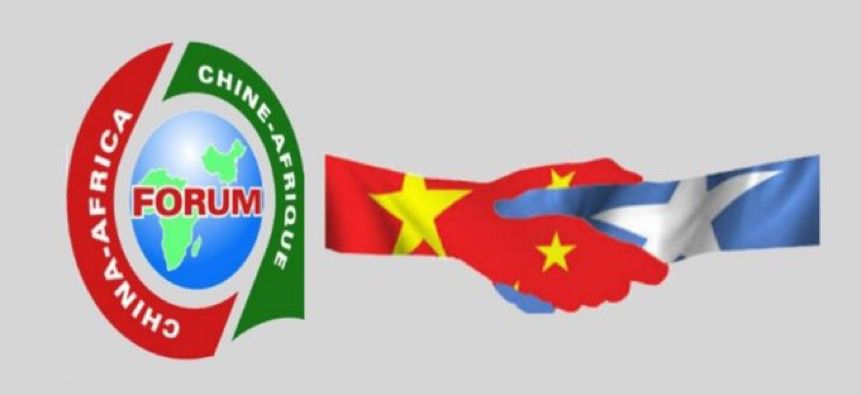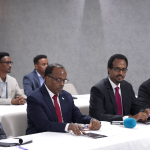Leveraging Cooperation With China for Somalia’s Halal Industry Potential
Somalia’s Global Halal Market Potential
The global Halal food industry is experiencing unprecedented growth, with forecasts suggesting numbers to reach near $3 trillion, or even more by 2028, fueled by an annual expansion rate of 11.25%. For Somalia, a nation rich in livestock and fishery resources, effective collaboration with China offers a strategic opportunity to capitalize on the Halal meat production sector – with in mind that China and Somalia currently enjoy a warm fishing cooperation. For Somalia’s Halal meat export potentials, success hinges on forward-thinking leadership and aligning with the Belt and Road Initiative (BRI) and the Forum on China-Africa Cooperation (FOCAC).
Somalia’s Unique Position in the Halal Market
Somalia has the potential to emerge as a leading global Halal meat brand and as one of the largest exporters of Halal-certified food/meatproducts to the Organization of Islamic Cooperation (OIC) countries, leveraging its unique geographical position, maritime routes, and extensive livestock and fishery resources. With over 7.1 million camels, 5.3 million cattle, 30.9 million goats, and 13.6 million sheep, which contribute around 80% to agricultural GDP and 45% to national GDP, according to the International Livestock Research Institution (ILRI). And with Brazil currently leading the market, top major Halal meat exporters include India, the USA, Russia, and Argentina, while Thailand remains the largest Halal processed food exporter in the world. This presents Somalia with a unique opportunity to fill this gap through developmental and partnership cooperation with China in Halal food industrialization.
The Expanding Halal Market
The Halal-certified food and beverage sector is experiencing rapid growth. In 2021, Halal food spending reached $1.27 trillion, according to research firm DinarStandard, highlighting the immense and growing role of Halal products globally. On the other hand, the Muslim population of today stands on the 2 billion marker, and is projected to expand by 70% or around 3 billion by 2060, meaning, the demand for Halal products is ever set to grow significantly. Despite this growth, Muslim-majority countries are yet to establish significant global Halal brands or fully tap into this lucrative market.
Strategic Collaboration with China
The Role of the FOCAC Summit
The upcoming FOCAC (Forum on China-Africa Cooperation) Summit in Beijing, early next month, offers a mutually beneficial platform for Somalia to forge strategic partnerships. Given with strong efforts and well-planning, Somalia can negotiate investments and collaborations that could assist Somalia towards its halal capacity potentials. The summit offers the opportunity to connect with Chinese investors interested in expanding their halal market reach through Somali resources.
Enhancing Infrastructure
The BRI’s emphasis on global trade and infrastructure development can be utilized to build infrastructural features, enhancing logistics and supply chains for Somali Halal production capacity. Investments in cold chain, transport and trade facilities will improve Somalia’s capacity to export Halal products efficiently, making it a competitive player in the global market.
Investing in Production
Chinese investments, guided by a clear vision, can support the establishment of processing facilities and quality control measures in Somalia. This will enable Somali producers to meet global Halal standards, increase product value, and compete effectively in international markets.
Leveraging Market Access
By forming strategic partnerships with Chinese firms, Somalia can meet international Halal standards and gain access to this lucrative market. This collaboration can also help Somalia secure a position as a key exporter of Halal food products to the Middle East and beyond. China’s growing demand for Halal products also provides Somalia with another substantial market opportunity.
Addressing Regional Competition
As competition in the Halal industry intensifies with emerging players like South Korea and the Philippines. The autonomous region of Mindanao of the Philippines aims to become a Halal hub in Southeast Asia, mainly due to investments from Western hegemonies as part of the “containing China” agenda that seeks to exploit the Halal industry — per se to divert the Halal market from China to Western-friendly Asian countries. With such developments under its nose, China can breathe freely through its ocean of potentials for Halal capacity developments in the MENA countries.
In Highlights
Somalia’s rich livestock resources, unique location, and strategic economic positioning offer significant potential to capitalize on the expanding Halal industry. By leveraging China’s developmental cooperation through the Belt and Road Initiative and the FOCAC Summit, Somalia can transform its Halal sector and emerge as a leading exporter of Halal food/meat products. Visionary leadership and strategic collaboration will be crucial in achieving this transformation, unlocking new economic opportunities for sustainable development and positioning Somalia as a prominent player in the global Halal market.
Hosow Ali, Geopolitical analyst and Sino-Africa relations expert, director and founder of the Somali Institute of Chinese Studies.





